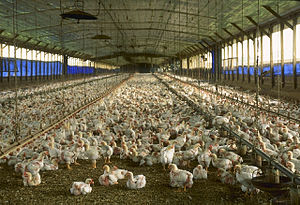 Image via CrunchBase
Image via CrunchBaseI stopped at Whole Foods Market in Paramus for a cup of black coffee this afternoon, and had two brief -- but interesting -- conversations about food.
I sat at a table, and the tall, thin man on my left was beautifully dressed in a long overcoat, suit and tie, and polished black shoes. His hair was silver, and I complimented him on his outfit, noting, "You look prosperous."
A few feet away, a young Korean woman was dressing her two small children in their winter coats as they prepared to leave after having a bite to eat. The man on my left complimented her on how well-behaved her children were.
When they left, he said you don't see children misbehave in Whole Foods because of the high quality of the food. He added the children appreciate the good food their mothers buy for them.
"Are you saying that in a fast-food restaurant, children are out of control?" He said, yes, they are, then got up to leave.
I turned to the Asian woman on my right, and repeated what he had said.
We talked about naturally raised food, and she mentioned her daughter is a vegetarian who eats only dairy and eggs. But she doesn't eat seafood, and will reject chocolate if the milk comes from a cow fed animal by-products (bits of dead animals) or another non-meat item if it has gelatin from an animal.
The woman said her relatives don't know what to serve her daughter. So she told them, "I don't eat anything with a face."



![Reblog this post [with Zemanta]](http://img.zemanta.com/reblog_a.png?x-id=ae370c0a-33ff-4e8b-8ca6-6a505953fac3)